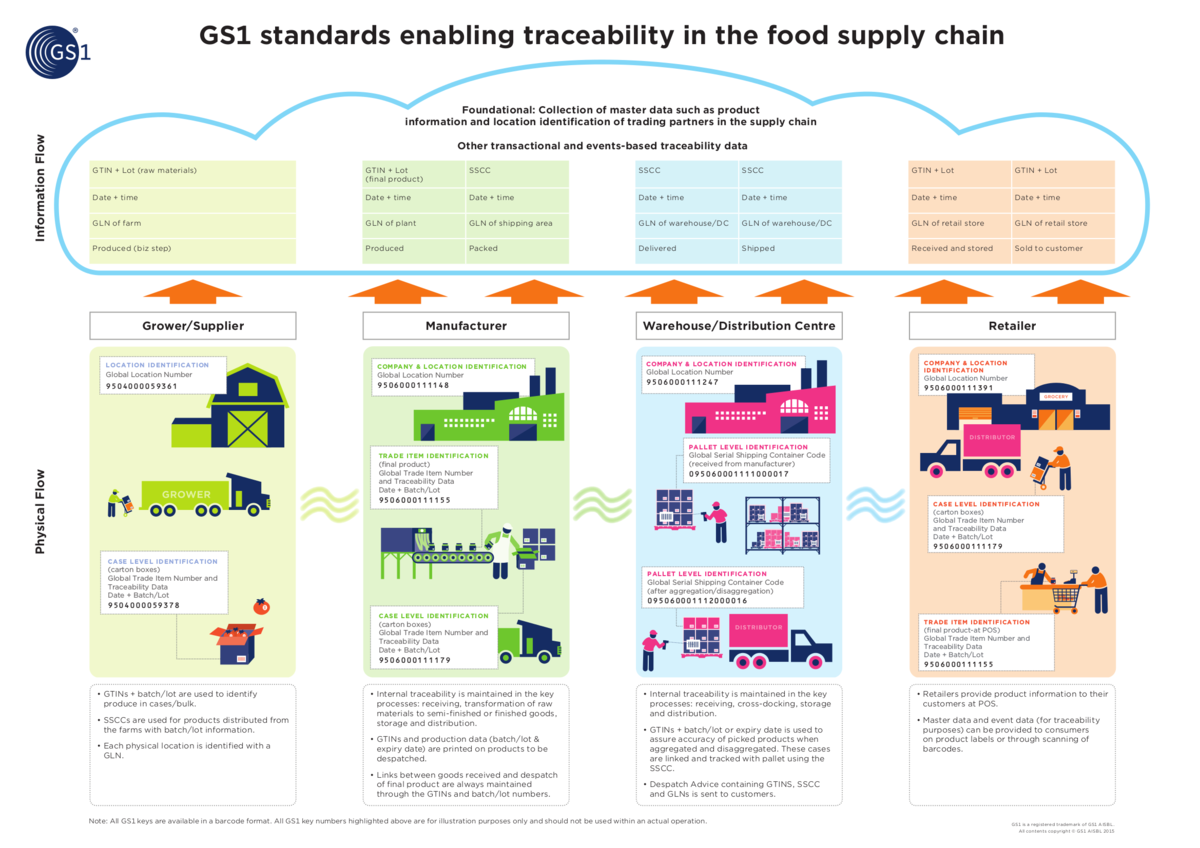The GS1 Global Traceability Standard defines a minimum set of traceability requirements within business processes to achieve full chain traceability, independent of any technology. It outlines a common framework to build a traceability system using other GS1 standards – such as barcodes, data carriers, eCom and EPCIS.
This standard allows an end-to-end traceability system, linking the flow of information to physical products. In an event of a food outbreak, the sharing of traceability information between trading partners in the supply chain is critical to ensure a targeted and effective recall.
The GS1 Global Traceability Standard is the basis of the GS1 Global Traceability Compliance Criteria for Food, a document used to evaluate critical points within a traceability system. Companies can verify the quality and integrity of their existing traceability system using this Checklist with the help of our traceability experts.
See GS1 Global Traceability Compliance Criteria for Food

Traceability data
The alignment, exchange and recording of traceability-related data between trading partners is important and described as follows:
- Master data – data which is permanent or relatively constant over time and provides descriptive attributes to the identification of products, parties and physical locations (e.g. name of company, contact details, address)
- Transaction data – data created from trade transactions triggering or confirming the execution of a function within a business process such as loading or unloading, or a business process in a business arrangement (e.g. time of production, best before date)
- Visibility event data - data detailing physical activity of products or other assets answering the “What, When, Where and Why” at real-time (e.g. temperature log)
Standards
Our standards offer globally unique identification and data capture of trade items, assets, logistic units, parties and locations. In addition, our standards enable critical data exchanges to be recorded so that there is alignment of traceability information between trading partners.
Traceability Implementation in Action
Any questions?
For a consultation with traceability experts, contact the following: Global traceability accredited auditors
We can help you get started or show you how to improve what you’re already doing with the standards.






